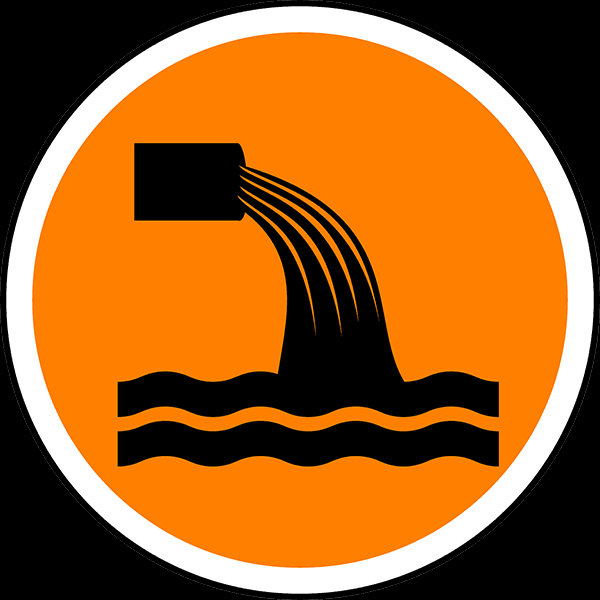The Basic Principles Of Reclaim Waste
The Main Principles Of Reclaim Waste
Table of ContentsIndicators on Reclaim Waste You Should KnowHow Reclaim Waste can Save You Time, Stress, and Money.The 3-Minute Rule for Reclaim Waste4 Simple Techniques For Reclaim WasteThe Single Strategy To Use For Reclaim Waste
Explore the kinds, events, and kinds of liquid waste. Domestic sewer waste refers to the waste and products from a household septic system. This kind of waste is created by human beings in homes, institutions, and various other structures. This only includes septic systems that have a drain area. The appropriate management and disposal of domestic sewer waste require fluid waste to be transferred to a sewer treatment plant where the proper methods and devices are related to purify and get rid of waste.
Business waste often consists of potential risks, such as flammable products or a combination of liquid and strong waste products, and needs an advanced and comprehensive disposal procedure. The disposal of industrial waste typically includes the filtering of waste before transport to make certain safe and appropriate disposal. Hazardous waste is created from byproducts and drainage of industrial processes and production.
This sort of waste can not make use of the very same sewage administration transport or procedures as septic or industrial fluids. The hazardous waste monitoring process requires the inspection and screening of fluid waste before it undertakes the disposal process (liquid waste disposal). Overflow waste is the fluid waste that originates from drainage and excess stormwater in very populated locations or cities
Runoff waste can create contamination and flooding if not dealt with properly. Discover more regarding sewage system cleansing and waste monitoring. Ensuring appropriate waste monitoring can avoid calamities and decrease environmental harm. Both people in household setups and experts in business or manufacturing markets can benefit from comprehending the processes and policies of fluid waste management.
Not known Facts About Reclaim Waste
Contact PROS Solutions today to discover our waste management and disposal solutions and the appropriate means to take care of the fluid waste you produce.
(http://www.askmap.net/location/7161699/australia/reclaim-waste)Do you know what takes place to your water when you disengage, flush the bathroom or drain the cleaning device? No? Well, it deserves recognizing. This so-called 'wastewater' is not only an essential source however, after treatment, will certainly be released to our land, rivers or the ocean. Made use of water from bathrooms, showers, bathrooms, kitchen sinks, washings and industrial procedures is called wastewater.

water used to cool equipment or tidy plant and devices). Stormwater, a kind of wastewater, is runoff that streams from farming and urban locations such as roofs, parks, yards, roadways, courses and rain gutters right into stormwater drains pipes, after rain. Stormwater flows unattended directly to regional creeks or rivers, at some point getting to the ocean.
Indicators on Reclaim Waste You Should Know
In Queensland, the majority of wastewater is dealt with at sewage therapy plants. Wastewater is carried from residential or a knockout post industrial websites with a system of drains and pump stations, called sewerage reticulation, to a sewage treatment plant. Neighborhood governments construct, keep and operate most sewage treatment plants. Operators are certified under the Environmental Defense Act 1994 to discharge treated wastewater at an acceptable environmental criterion into waterways.
The Division of Natural Resources suggests regional governments regarding managing, operating and maintaining sewage systems and treatment plants. In unsewered areas, regional governments might need homeowners to set up individual or house sewage treatment systems to deal with domestic wastewater from bathrooms, kitchen areas, shower rooms and laundries. The Department of Natural Resources authorises using family systems when they are confirmed to be reliable.
In some brand-new class, treatment of some stormwater to remove clutter, sand and gravel has actually begun utilizing gross pollutant traps. Wastewater therapy occurs in 4 phases: Removes solid issue.
Wastewater then streams into large storage tanks where solids resolve and are eliminated as sludge. Grease and scum are skimmed from the surface area. Utilizes small living microorganisms called micro-organisms to damage down and eliminate remaining dissolved wastes and great particles. Micro-organisms and wastes are included in the sludge. Removes nitrogen and phosphorus nutrients that could create algal blossoms in our waterways and endanger water life.
Reclaim Waste Can Be Fun For Everyone
Nutrient elimination is not offered at all sewage therapy plants since it needs expensive specialized tools. Clear liquid effluent produced after therapy may still include disease-causing micro-organisms - liquid waste disposal.

This usually suggests wastewater needs to be treated or impurities eliminated before it can be released to waterways. The majority of wastewater streams into the sewage system. Under the Act, city governments provide approvals and permits for environmentally pertinent activities (Periods) including wastewater launches that may have a local influence. The department carries out approvals and permits to ERAs entailing wastewater releases that may have a regional or statewide effect.
All about Reclaim Waste
Or else, samples are taken for lab evaluation. Often numerous tests are needed to develop the degrees of each of the various pollutants such as oils, heavy metals and pesticides in water. Tracking gives valid information about water quality and can verify that licence conditions are being satisfied. The info acquired with tracking supplies the basis for making water high quality decisions.